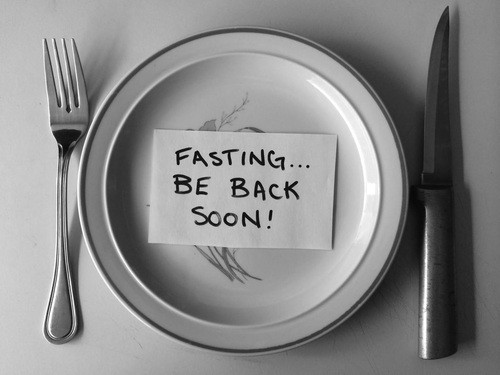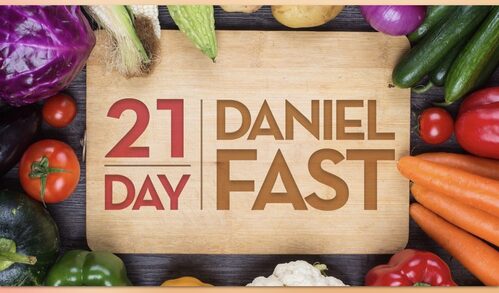Uplift Fasting 101

Why We Fast?
Fasting is a biblical discipline that helps us draw closer to Elohim by humbling our hearts, quieting our flesh, and strengthening our dependence on Him. Yeshua (Jesus) made it clear that fasting is not optional when He said, “When you fast…” (Matthew 6:16) — not if. Just as He taught when you give and when you pray, Yeshua included fasting as a normal part of the believer’s walk.
We fast because it is both a command and a privilege. Fasting is a way of saying:
The disciples and the early church also modeled fasting. Scripture and historical evidence show that they fasted regularly as they sought Yahweh’s guidance, power, and direction for the work ahead (Acts 13:2–3; Acts 14:23).
At Uplift, we embrace fasting as a lifestyle of humility and devotion. Whether it is for personal breakthrough, spiritual renewal, guidance, or corporate unity, fasting helps us become more aware of Yahweh’s presence, strengthens our spirit for the battles of life, and reminds us that every blessing, every breath, and every need is supplied by Him.
We fast because it is both a command and a privilege. Fasting is a way of saying:
- We need Elohim more than we need food.
- We want His presence more than our own comfort.
- We long for His strength to overcome sin, temptation, and trials.
The disciples and the early church also modeled fasting. Scripture and historical evidence show that they fasted regularly as they sought Yahweh’s guidance, power, and direction for the work ahead (Acts 13:2–3; Acts 14:23).
At Uplift, we embrace fasting as a lifestyle of humility and devotion. Whether it is for personal breakthrough, spiritual renewal, guidance, or corporate unity, fasting helps us become more aware of Yahweh’s presence, strengthens our spirit for the battles of life, and reminds us that every blessing, every breath, and every need is supplied by Him.
Types of Fasts
The Bible Describes Four Major Types of Fasting
Absolute Fast
A complete fast involves no food and no water. Acts 9:9 describes Paul after his encounter with Yeshua: “For three days he was blind, and did not eat or drink anything.” Esther also called for this fast (Esther 4:15–16). This type should be done only under the Holy Spirit’s leading and with great caution. At Uplift, we observe a 24-hour absolute fast annually on Yom Kippur (Day of Atonement).
Liquid Fast
Traditionally, a regular fast means refraining from eating all food. Most people still drink water or juice during a regular fast. When Yeshua fasted in the desert, the Bible says, “After fasting forty days and forty nights, He was hungry” (Matthew 4:1–2; Luke 4:2). Notice, Scripture does not mention thirst.
Partial Fast
This type of fast refers to omitting a specific meal or refraining from certain foods. In Daniel 1:12, Daniel and his friends restricted themselves to vegetables and water. Later, Daniel mourned and fasted for three weeks, saying: “I ate no choice food; no meat or wine touched my lips” (Daniel 10:2–3). At Uplift, we participate in the 21-day Daniel Fast each year as a church family, beginning 21 days before Resurrection Sunday.
Personal Fast
A Soul Fast means giving up distractions like social media, television, shopping, or other habits that pull your focus from Elohim. It’s helpful if you are new to fasting, have health limitations, or need to refocus your heart. By setting aside these activities, you create space to seek Elohim and grow as a disciple. Yeshua said, “Whoever wants to be My disciple must deny themselves and take up their cross daily and follow Me” (Luke 9:23).
Intimacy Fast
Paul taught married couples that intimacy may be set aside “by mutual consent and for a time, so that you may devote yourselves to prayer” (1 Corinthians 7:3–6).
Absolute Fast
A complete fast involves no food and no water. Acts 9:9 describes Paul after his encounter with Yeshua: “For three days he was blind, and did not eat or drink anything.” Esther also called for this fast (Esther 4:15–16). This type should be done only under the Holy Spirit’s leading and with great caution. At Uplift, we observe a 24-hour absolute fast annually on Yom Kippur (Day of Atonement).
Liquid Fast
Traditionally, a regular fast means refraining from eating all food. Most people still drink water or juice during a regular fast. When Yeshua fasted in the desert, the Bible says, “After fasting forty days and forty nights, He was hungry” (Matthew 4:1–2; Luke 4:2). Notice, Scripture does not mention thirst.
Partial Fast
This type of fast refers to omitting a specific meal or refraining from certain foods. In Daniel 1:12, Daniel and his friends restricted themselves to vegetables and water. Later, Daniel mourned and fasted for three weeks, saying: “I ate no choice food; no meat or wine touched my lips” (Daniel 10:2–3). At Uplift, we participate in the 21-day Daniel Fast each year as a church family, beginning 21 days before Resurrection Sunday.
Personal Fast
A Soul Fast means giving up distractions like social media, television, shopping, or other habits that pull your focus from Elohim. It’s helpful if you are new to fasting, have health limitations, or need to refocus your heart. By setting aside these activities, you create space to seek Elohim and grow as a disciple. Yeshua said, “Whoever wants to be My disciple must deny themselves and take up their cross daily and follow Me” (Luke 9:23).
Intimacy Fast
Paul taught married couples that intimacy may be set aside “by mutual consent and for a time, so that you may devote yourselves to prayer” (1 Corinthians 7:3–6).
How to Fast— practical guide
This section gives clear, practical steps for fasting that honor Yeshua’s instruction (When you fast…) and protect your health while helping you draw near to Elohim.
Before you fast — prepare your heart and body
Daily rhythm while fasting
Yeshua’s Guidelines for Fasting
In Matthew 6:16–18, Yeshua gave direct teaching on how His followers should fast:
How to pray while fasting — modeled on Yeshua and Isaiah
Practical tips for different fast types
Community and accountability
How to end your fast — break it gently
Safety reminders
Short prayer to begin a fast
Yahweh, I come quietly before You. I deny myself to seek Your face. Fill me with Your Spirit, reveal any sin, and lead me in Your ways. Use this time to draw me nearer, to strengthen my faith, and to show me how to love others. In Yeshua’s name. Amen.
Before you fast — prepare your heart and body
- Decide your purpose. Be specific: guidance, repentance, breakthrough, spiritual clarity, intercession, or refocus.
- Choose the type of fast that fits your season: liquid, partial, absolute (only under the Spirit), intimacy fast, soul fast, or an indulgence fast.
- Pray for guidance. Ask Elohim to confirm the length and kind of fast. Remember Yeshua’s teaching: when you fast, do it with humility and sincerity (Matthew 6:16–18).
- Check your health and medications. Any fast that alters prescribed meds or affects chronic conditions should be cleared with your physician.
- Prepare practically: reduce strenuous activity, plan light work for the fast day(s), tell a trusted partner you’re fasting, and set simple rhythms for prayer and Scripture.
Daily rhythm while fasting
- Start with worship and gratitude. Thank Yahweh for His presence and past faithfulness.
- Read and meditate on Scripture in short, focused passages (for example: Matthew 6, Psalm 42, Isaiah 58).
- Pray in targeted ways: confession, petition, intercession, thanksgiving, listening. Use the Lord’s Prayer as a template for petition and dependence (Matthew 6:9–13).
- Use short, repeated prayers or breath prayers during the day to stay centered (e.g., Yahweh, have mercy; Yeshua, lead me).
- Journal insights, impressions, and answers. Record anything Elohim speaks for later reflection.
Yeshua’s Guidelines for Fasting
In Matthew 6:16–18, Yeshua gave direct teaching on how His followers should fast:
- Do not fast for attention. “When you fast, do not look somber as the hypocrites do, for they disfigure their faces to show others they are fasting.” Fasting is between you and Elohim, not a way to appear holy before people.
- Keep your outward life normal. Yeshua said, “Put oil on your head and wash your face, so that it will not be obvious to others that you are fasting.” This means continue with daily life without drawing attention to your sacrifice.
- Seek your reward from Elohim, not people. “Your Father, who sees what is done in secret, will reward you.” The true power of fasting is in the unseen — Elohim sees your devotion and answers with His presence, direction, and blessing.
- Don’t announce your fast unless accountability or health requires it.
- Maintain your normal appearance and schedule as much as possible.
- Guard your heart against pride — fasting is not a performance but a pursuit of Yahweh.
- Remember that the reward of fasting is more of Him, not the recognition of people.
How to pray while fasting — modeled on Yeshua and Isaiah
- Start with honesty and confession. Ask Yahweh to reveal any hidden sin.
- Seek alignment, not bargains. Pray for a heart that wants Yahweh’s will more than relief from difficulty.
- Pray Scripture back to Elohim. Use passages Yeshua used (Deuteronomy for temptation, Psalm prayers for praise).
- Intercede with action in view: Isaiah 58 ties fasting to justice and mercy — when we fast, also ask Yahweh how to serve the hungry, the oppressed, and the vulnerable.
- Expect transformation. Isaiah 58:8–11 links fasting and right action to healing, guidance, and renewed strength.
Practical tips for different fast types
- Soul Fast (non-food) — remove a distraction (social media, streaming, shopping) and replace it with scripture, prayer, and service. Anchor with Luke 9:23: deny self and follow Yeshua.
- Partial/Daniel-style Fast — limit meals or foods (e.g., no meat, sweets, processed foods) and use that time for prayer and Scripture. Good for 10–21 days.
- Liquid/Extended Fast — only under clear leading and with experience; drink purified liquids, rest more, and monitor health.
- Absolute Fast (no food/no water) — only under immediate Spirit leading and short duration (example: 3 days). Do not attempt without counsel and good reason.
- Intimacy Fast — spouses mutually agree to abstain from intimacy for a season to devote time to prayer (1 Corinthians 7:5).
- Indulgence Fast — give up a habit (TV, shopping, sweets) to break mastery and create space for Elohim.
Community and accountability
- Fast with a partner or small group when possible. Share prayer requests and check in daily.
- If your church is doing a corporate fast, join corporate prayers and gatherings for unity and mutual encouragement.
How to end your fast — break it gently
- Give thanks first. Enter praise before food.
- Reintroduce food slowly: start with water, diluted juice, fruit, soup, light vegetables. Avoid heavy, greasy, or extremely spicy foods immediately after an extended fast.
- Reflect on what you heard: journal, share with an accountability partner, and plan practical next steps Elohim gave you.
- Stay humble: fasting is a beginning of a new posture, not a trophy. Keep the spiritual rhythms you began.
Safety reminders
- Always check with your doctor if you are pregnant, nursing, diabetic, on medications, elderly, or have chronic health issues.
- Absolute and long liquid fasts carry risk — do not attempt without supervision.
- Modify your fast if you feel dizzy, faint, or otherwise unwell.
Short prayer to begin a fast
Yahweh, I come quietly before You. I deny myself to seek Your face. Fill me with Your Spirit, reveal any sin, and lead me in Your ways. Use this time to draw me nearer, to strengthen my faith, and to show me how to love others. In Yeshua’s name. Amen.


